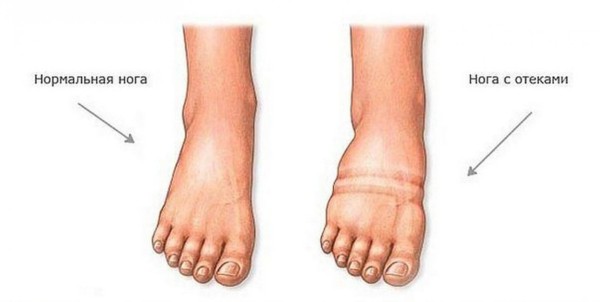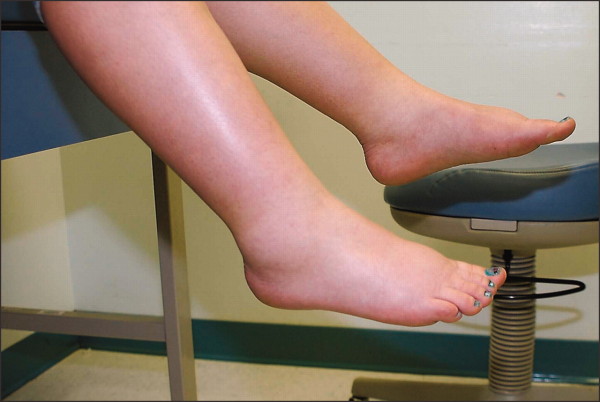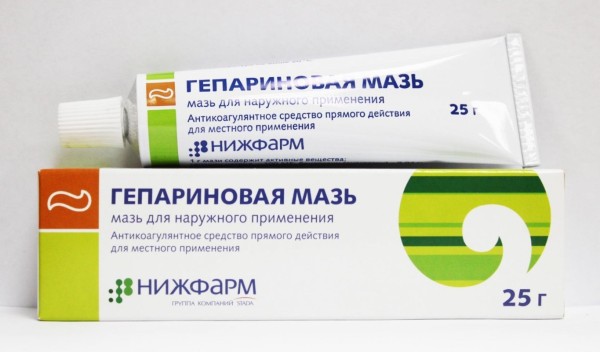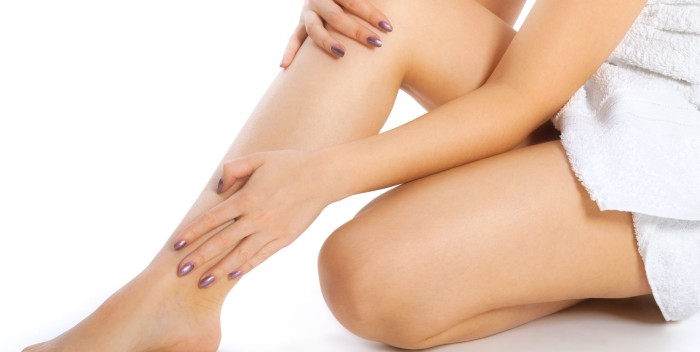Why legs swell and what to do about it
Many people experience a condition such as swelling of the legs. At the same time, excess fluid accumulates in the lower limbs, as a result of which the legs increase in size. This condition can be observed in people of different ages and gender.
Symptoms of leg swelling
You may not even notice outwardly that a person's legs are swollen. The very first thing you should pay attention to is the presence of imprints from sock elastic bands on the ankles. A person may feel discomfort when walking in seemingly familiar shoes. If the disease continues to develop, the unpleasant feelings will only intensify.
 Symptoms vary depending on the cause of the disease. With the physiological nature of the disease in a person, with the approach of evening, the legs swell more. The same condition can be seen after eating food or after being in the sun for a long time. In the case of another disease that caused the edema, the symptoms may be expressed differently:
Symptoms vary depending on the cause of the disease. With the physiological nature of the disease in a person, with the approach of evening, the legs swell more. The same condition can be seen after eating food or after being in the sun for a long time. In the case of another disease that caused the edema, the symptoms may be expressed differently:
- If a person develops varicose veins, then the edema is usually manifested by a different increase in the right and left legs. Additionally, there is pain in the legs and a feeling of heaviness.
- In the presence of thrombophlebitis, edema spreads exclusively along the affected leg. In addition, the patient feels pain, burning while walking. At the same time, the skin acquires a red tint.
- If the cause of the development of edema lies in kidney disease, then the skin becomes pale.
- Edema in diseases of the thyroid gland is usually elastic, while there are no traces of rubber bands on the legs.
Causes of leg swelling
There are many reasons for swollen legs. Among them there are quite harmless ones, and there are those that indicate the presence of serious health problems. The physiological factors affecting the condition of the legs include prolonged standing, too much liquid in the evening, sitting on a low chair for a long time, wearing uncomfortable shoes, especially on tall and thin ones. heels.
Other ailments that lead to edema include metabolic disorders, heavy weight, flat feet. There are other diseases and conditions that lead to edema.
 Swelling with varicose veins is very common. In this case, the legs swell due to impaired blood flow and the appearance of congestion. Usually, in this case, the swelling is more pronounced towards the night, especially if you are constantly on your feet during the day. By the morning, the legs return to their normal state.
Swelling with varicose veins is very common. In this case, the legs swell due to impaired blood flow and the appearance of congestion. Usually, in this case, the swelling is more pronounced towards the night, especially if you are constantly on your feet during the day. By the morning, the legs return to their normal state.
When dysfunction of the heart edema also appears. This is especially true for heart failure. In this case, the person has shortness of breath and difficulty breathing at night.
With kidney disease, swelling spreads to both legs. Such a disease is also imprinted on the face - shadows under the eyes lie, the eyelids swell. In this case, the swelling is more pronounced in the morning, and at the end of the day, the swelling decreases.
If metabolic processes are disturbed, the edema will be elastic; pressing on the swollen place does not leave a depression. Additionally, a person will feel drowsy, constantly freezing, he may have digestive problems.
How to relieve leg swelling
To combat puffiness, you can use medicines or recipes from traditional healers. In this case, it is important to first find out the cause of the swelling of the legs and consult with your doctor about treatment. Usually, local preparations are used from medicines - a variety of ointments, creams and gels that are applied to the affected limbs. These include heparin ointment, Essaven gel, Venitan, Lioton or Troxevasin. All of these products contain substances that help strengthen the vascular walls. Before using them, it is good to make a contrast bath or simply pour over. After applying the drug, you need to lie down and rest.
 Well eliminates the swelling of a bath with dried grass. It must be poured with a large amount of boiling water and insisted for several hours. After that, the infusion must be drained and slightly warmed up. You need to keep your feet in such a bath for 20 minutes.
Well eliminates the swelling of a bath with dried grass. It must be poured with a large amount of boiling water and insisted for several hours. After that, the infusion must be drained and slightly warmed up. You need to keep your feet in such a bath for 20 minutes.
 Before going to bed, you can attach cabbage or burdock leaves to your feet and secure them with a gauze bandage. This compress must be kept all night long. Regular use of it will allow you to forget about edema for a long time.
Before going to bed, you can attach cabbage or burdock leaves to your feet and secure them with a gauze bandage. This compress must be kept all night long. Regular use of it will allow you to forget about edema for a long time.


